When you search in Scopus, you’re using a comprehensive, curated and trusted academic database. You can find authoritative research, identify top experts and gain strategic insights. Combing through content from more than 7,000 global publishers to find relevant content for your project may seem daunting, but Scopus tools quickly refine your search. Among them is Scopus Advanced search, which fine-tunes the scope of your search using field codes, proximity operators and Boolean operators.
Knowing how to structure a Boolean query for a Scopus literature search can help you control both the number and the relevance of the results retrieved. Since the search logic was designed with librarians in mind, many non-librarian users may not be familiar with Boolean operator precedence and best practices for using parentheses. Learning about them can help you understand how search terms are processed and in what order.
In this article, we’ll explain how Boolean logic is applied in Scopus and share best practices for constructing queries. We’ll also tell you about an upcoming update to Boolean operator precedence, set to roll out in fall 2025 and be fully implemented in early 2026.
Many thanks to Rosie Dunne, Research Services Librarian at Ollscoil na Gaillimhe – University of Galway, for her expert insights and examples that contributed to this blog. (0000-0003-2256-5590) – ORCID
Boolean operators define how search terms interact, and the order in which they are applied can significantly impact search results, especially if parentheses are not used to group key concepts.
In basic or advanced lexical searches with multiple operators, Scopus processes queries in the following order:
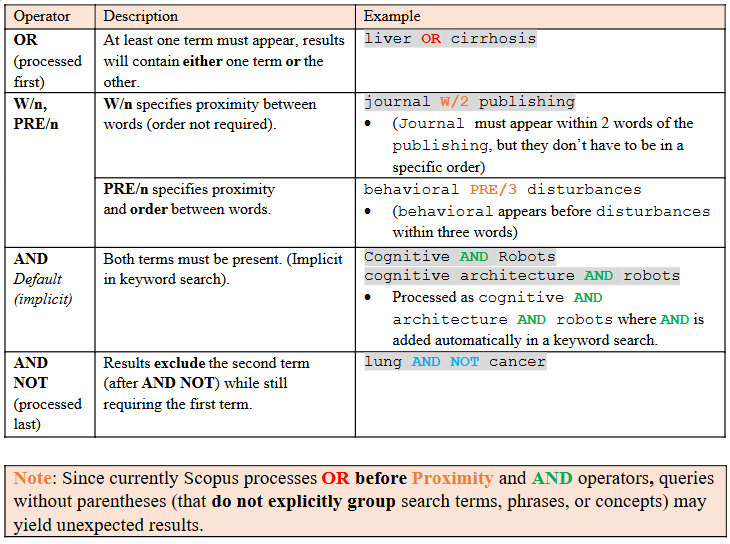
Proximity searching narrows searches by finding words that are next to or within a specified distance from each other. This is useful when you are looking for concepts that might be expressed by multiple different phrases.
Example 1: Searching for tidal energy research
Consider these three queries, all with the same user intent. However, one of them produced unexpected results:
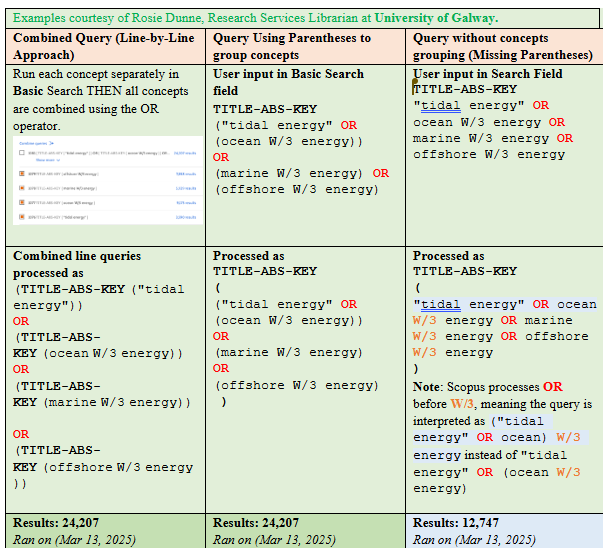
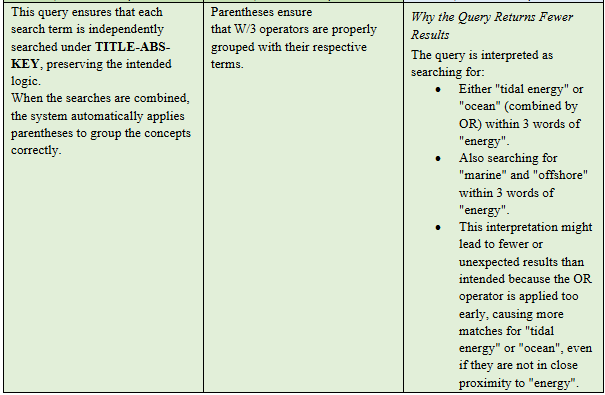
Example 2: Enhancing complex queries
Many users assume complex searches require lengthy queries, but grouping enhances clarity and efficiency. Using parentheses to structure searches ensures logical relationships between keywords, improving precision and yielding better results.
Consider these two queries:
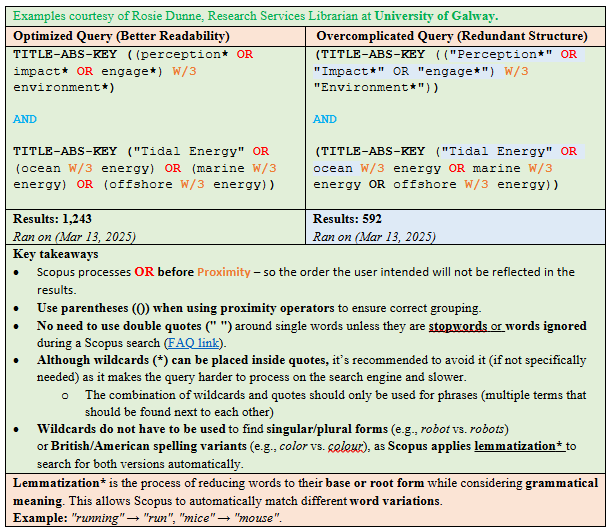
Example 3: Comparison of Scopus search types
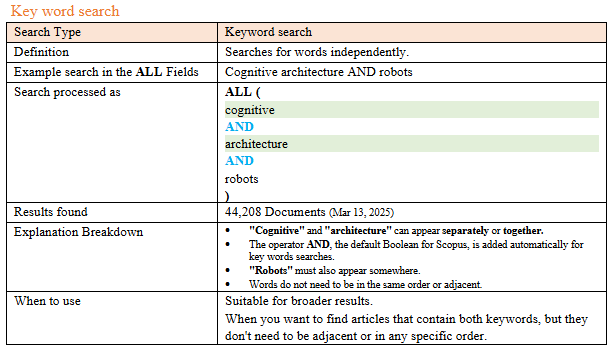
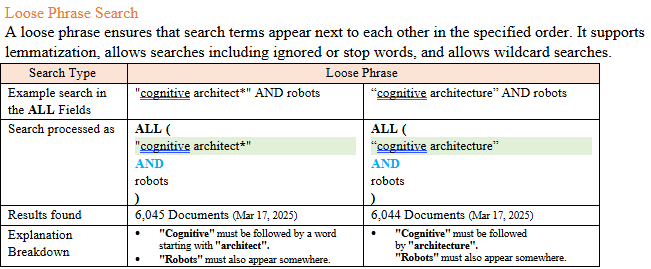
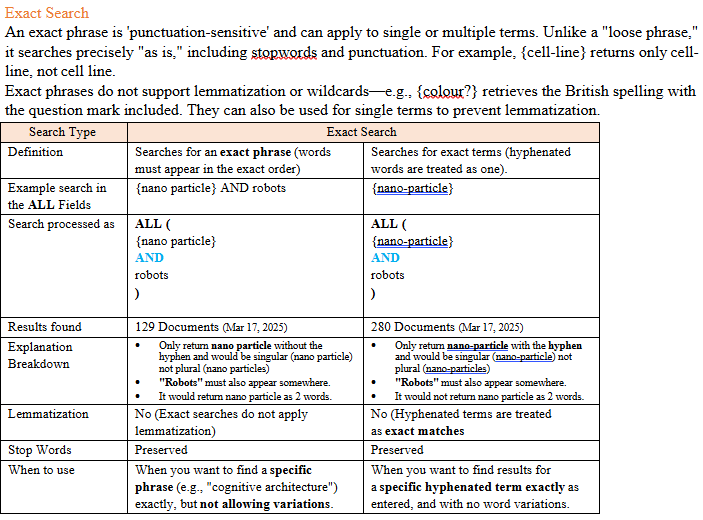
Understanding Boolean operator precedence and search types in Scopus is crucial for retrieving the desired accurate and comprehensive search results.
By applying these best practices, you can maximize the effectiveness of your Boolean searches in Scopus.
Starting in late 2025, Scopus will gradually update Boolean operator precedence to align with the current industry standards and will finalize the update in early 2026.
If your queries do not have parentheses to specify precedence, Scopus will follow this new default order when the update is rolled out:
If you prefer the old precedence rules, you can still enforce them by manually grouping terms with the correct parentheses.